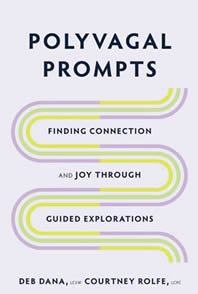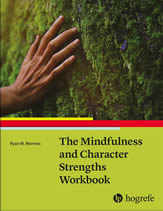The Mother-Infant Interaction Picture Book: Origins of Attachment
The authors call for “a dramatic shift in the way we, as adults, and as a culture, view infants. Already, by four months, infants notice, remember, and come to expect every little thing” (pg. 232). Their hope is to influence our view of infants so that we learn to appreciate infants’ extraordinary social capacities. Infants already let us know what they are feeling and we, without consciousness, communicate our feelings to them as well.
Surviving the Early Years: The Importance of Early Intervention with Babies at Risk
Edited by Stella Acquarone
Reviewed by Nancy Eichhorn
Editing an anthology isn’t easy. Theme-based anthologies are not simply a random collection of professional essays; the contributions...
Meeting the Needs of Parents Pregnant and Parenting after a Loss
Meeting the Needs of Parents Pregnant and Parenting After Perinatal Loss offers a supportive framework that integrates continuing bonds and attachment theories to support prenatal parenting at each stage of pregnancy. Giving insight into how a parent’s world view of a pregnancy may have changed following a loss, readers are provided with tools to assist parents as they explore pregnancy (conception, gestation, labor and birth) once again.
The Art of Healing from Sexual Trauma: Tending Body and Soul Through Creativity, Nature,...
Ardea writes with bodily expression, with movement in color, in text, in breath: “My pelvis feels inflamed, wobbly, twisted. It’s heavy like an overloaded water balloon. When I breathe and pay attention to my pelvis, I feel sadness well up, as though there’s an artesian well bursting up from my lower abdomen to fill my heart with sad, sad, waters. My hands feel prickly as all these waters overflow from my heart. They gust out in shaky waves down my arms and hands”.
Truly Mindful Coloring
I struggle to sit still (unless I’m sitting outside in nature, but I’m talking about everyday life here). Ask me to sit and be silent? Well my mental chatter loves to make me nuts. I focus on the breath. I focus on sensation. I focus on the fact that I am not focusing, with a touch of loving kindness and compassion. I am kind to myself no doubt there; I accept that my mind loves to whirl and twirl, to take facts and create stories, to take a fleeting image or sensation and create a long-winded tale. Even here, on the page, the words keep flowing when the point has most likely already been made. I’ve read countless books (reviewed many, done the practices). I’ve attended webinars and workshops and meditation groups, all with the same frustration. Silence while sitting escapes me. I thought I was hopeless until now.
Tea with Winnicott
Tea with Winnicott does seem like a real conversation with the acclaimed psychoanalyst, and allows the reader to develop a personal understanding of Winnicott as not just a figure of modern psychoanalysis, but as a regular person. Often funny and charming, Winnicott ends up capturing your attention and perhaps even your heart, creating a valuable place on the shelf to reflect on the importance and value of Winnicott.
Breakthrough Moments in Arts-Based Psychotherapy
In Breakthrough Moments in Arts-Based Psychotherapy Aileen Webber shares her personal journey to discover what might be happening during pivotal "break through" moments in psychotherapy and demonstrates their importance for clients' change processes.
Treating Trauma-Related Dissociation
In their preface, Kathy Steele, Suzette Boon, and Onno van der Hart challenge the classic notion of ‘don’t just do something, stand there’ with a new notion: ‘don’t just do something, be there’.
Understanding and Treating Chronic Shame
Understanding and Treating Chronic Shame by Dr. Patricia A. DeYoung offers readers a deep analysis of shame, how it operates, and how the psychotherapist-patient relationship can be the primary relationship that heals shame
Everyday Evils: A Psychoanalytic View of Evil and Morality
Everyday Evils is fascinating for its breadth of analysis across several different schools of thought in psychology and for the grasp of understanding of history, ethics, and the intersections of various fields of study.














